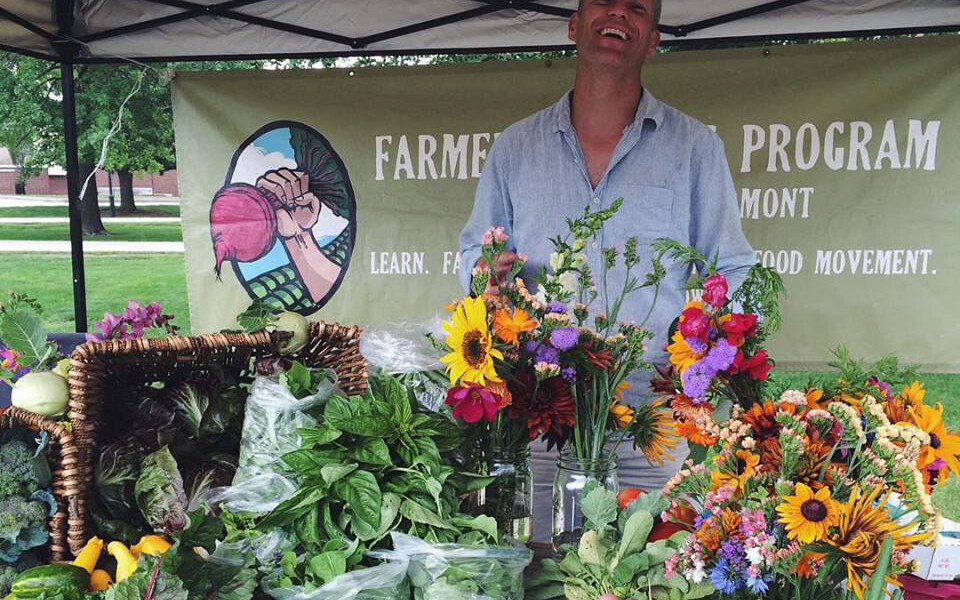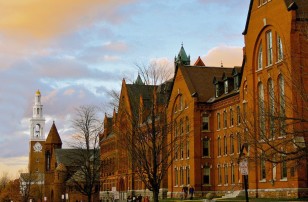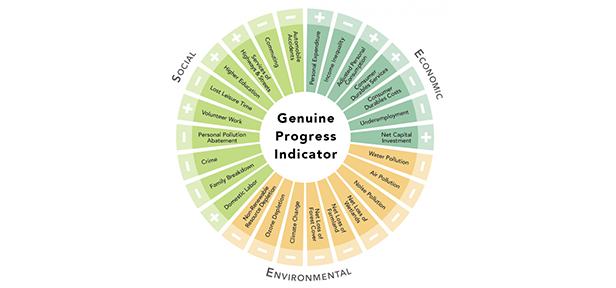Agroecology is finding a mainstream audience in the world of international food and agricultural policy. For Professor Ernesto Méndez, that’s good news. Méndez, a professor in the College of Agriculture and Life Sciences, the Environmental Program and a Fellow at UVM’s Gund Institute for Environment, is launching a Certificate of Graduate Study in Agroecology this summer through the Agroecology and Livelihoods Collaborative (ALC). The program was developed as an expansion of the 10-day International Agroecology Shortcourse, which began nearly 20 years ago, with Stephen R. Gliessman, Méndez’ agroecology mentor at the University of California, Santa Cruz.
Growing Awareness of Agroecology
The certificate program and the recent expansion of the ALC is partly a result of an increased global interest in agroecology over the last decade. Méndez defines Agroecology as an approach that integrates ecological science with other scientific disciplines (e.g. social sciences) and knowledge systems (e.g. local, indigenous) to guide research and actions toward the sustainable transformation of our current agrifood system.
Agroecology aims to both increase the ecological benefits of farming, as well as address concerns of economic viability and social justice throughout the food system. Agroecology also seeks to bring forward farmer voices to both study and find tangible solutions to some of the toughest challenges facing our food systems.
“Agroecology doesn’t fit with industrialized agriculture very well,” Méndez says. “There has been push back from big ag and even academia on agroecology. But we are getting more support and more interest.”
The turning point for agroecology becoming more mainstream on the global stage happened between 2008 and 2011. First, agroecology was prominent in the International Assessment of Agricultural Science & Technology for Development (IAASTD), a report compared to the IPCC for climate change.
Following this, the UN Special Rapporteur on the Right to Food advocated for the use of agroecology to confront global food insecurity and advance the right to food. Now Méndez is using that increased awareness for his work with farmers in Vermont and Latin America.
A Participatory Action Research Approach
Méndez’ research approach, which prioritizes collaboration and real-world impact, is rooted in “participatory action research” (PAR). PAR explicitly seeks out and considers perspectives of farmers and other non-academics, which helps to increase and improve the delivery of on-the-ground solutions, he says.
“Interest in PAR has really exploded because the traditional ways of top-down problem-solving are not working anymore,” he says.
Méndez has spearheaded a variety of UVM agroecology research projects, including a transdisciplinary initiative on the resilience of Vermont farmers to climate change, which explored climate change best management practices (CCBMPs) for increased on-farm adaptation.
“What stuck with me was that the farmers we talked to were very much aware that climate change is happening—I don’t think anyone was denying anything. But one of the main issues is having no bandwidth to deal with these new challenges,” he says. “The more resilient farmers are ones who somehow can organize themselves enough to look ahead. Others are aware but not addressing climate change, and that says to me that those famers need help. The practices of cover cropping and planting hedge rows are not new, but the question is, how do we reach a lot of people with a lot of information? What is the best way to support these farmers? One of the biggest issues with farming is time.”
The PAR approach is also being applied through ongoing work that started in 2016 with Catamount Farm, the Intervale Center, New Farms for New Americans, and the Vermont Community Garden Network, to explore urban farming in Vermont. The group is also working with the Vermont Caribbean Institute, who coordinates the Cuba-US Agroecology network and is facilitating a visit to the state with a group of Cuban farmers and practitioners.
“Cubans are using agroecology very successfully and we want to learn from their experience,” Méndez says. “We’ll be looking at the benefits and challenges of urban farming in Vermont. And it’s important to recognize that with Burlington’s diverse population, people grow food for different reasons. Some do it to make money while others to it to produce food for their family or to enjoy the social aspect of gardening. These are all things to consider.”
Born in El Salvador, Méndez studied in California before landing a teaching job at UVM in 2006. Méndez credits his ALC team, which includes staff, research assistants, and students, with making his work possible.
“I can’t do it on my own, and working with my team is what it takes to make this research happen,” he says.
He also draws inspiration from UVM students.
“I find that this new generation of students are a lot more aware of that food issues occurring right now,” he says. “Today’s students are more open to embracing the complexities, recognizing what the problems are, and acknowledging that the solutions might not be so simple.”
-Our “UVM Is” series celebrates University faculty, educators, and the campus community.
To learn more, visit UVM Continuing and Distance Education at learn.uvm.edu.




